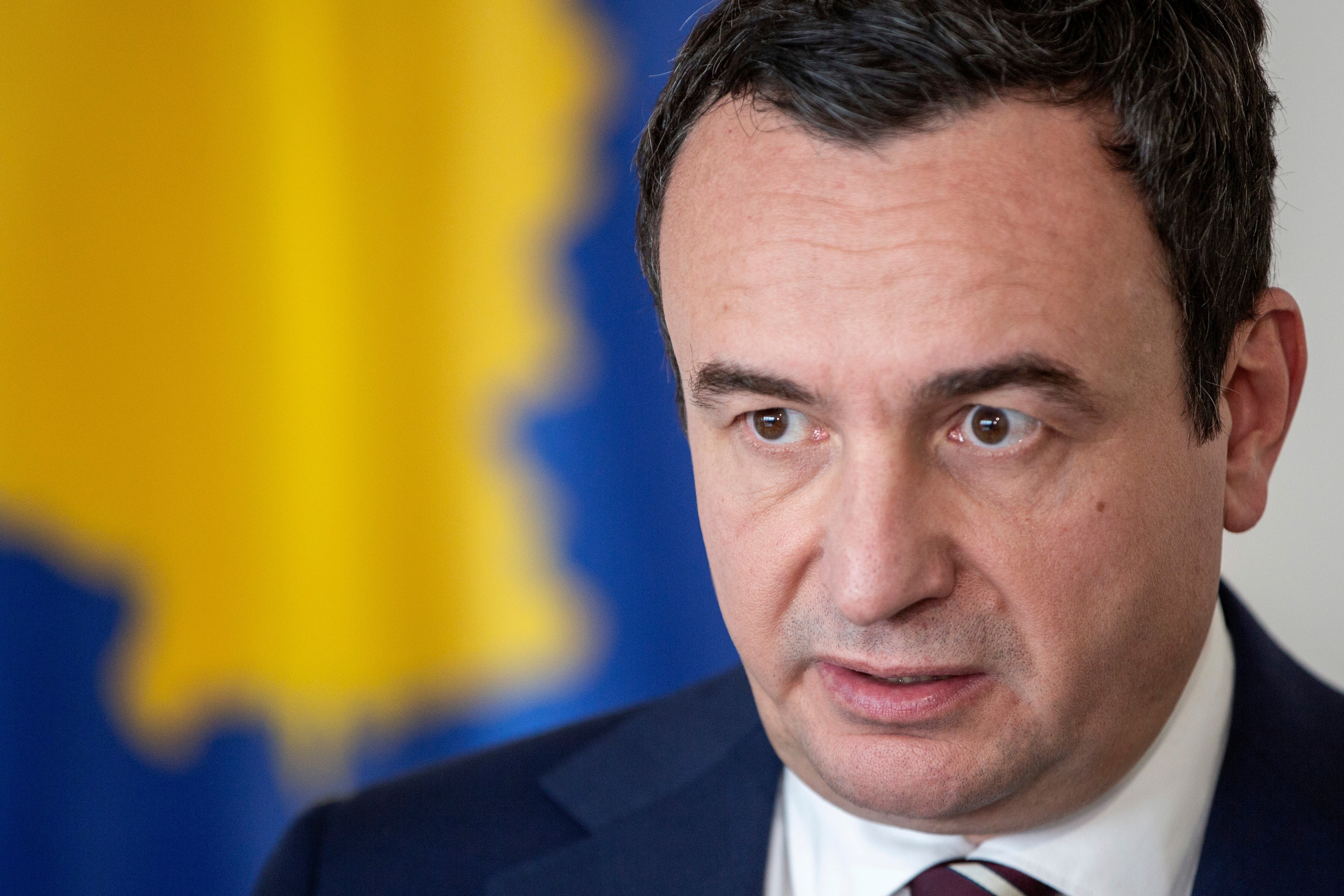Kosovo asks for more NATO-led peacekeepers along the border with Serbia
Kosovo’s prime minister has asked NATO-led peacekeepers to increase their presence on the northern border with Serbia, saying the area is the entry point for illegal weapons and threats to stability

Your support helps us to tell the story
From reproductive rights to climate change to Big Tech, The Independent is on the ground when the story is developing. Whether it's investigating the financials of Elon Musk's pro-Trump PAC or producing our latest documentary, 'The A Word', which shines a light on the American women fighting for reproductive rights, we know how important it is to parse out the facts from the messaging.
At such a critical moment in US history, we need reporters on the ground. Your donation allows us to keep sending journalists to speak to both sides of the story.
The Independent is trusted by Americans across the entire political spectrum. And unlike many other quality news outlets, we choose not to lock Americans out of our reporting and analysis with paywalls. We believe quality journalism should be available to everyone, paid for by those who can afford it.
Your support makes all the difference.Kosovo's prime minister on Wednesday asked NATO-led peacekeepers to increase their presence on the northern border with Serbia, saying the area was the entry point for illegal weapons and threats to stability.
“Such an increased presence should be focused in guarding the border between Kosovo and Serbia where all Serbia’s weaponry has arrived from and the threat to Kosovo comes,” Prime Minister Albin Kurti told Maj. Gen. Ozgan Ulutas, the new commander of the Kosovo Force mission, or KFOR.
Kurti has repeatedly said Kosovo police cannot fully guard the 350-kilometer (220 mile) long border with Serbia and its many illegal crossings used by criminals.
On Sept. 24, around 30 Serb gunmen crossed into northern Kosovo, killing a police officer and setting up barricades, before launching an hours-long gun battle with Kosovo police. Three gunmen were killed.
The incident sent tensions soaring in the region.
Kosovo has a limited number of law enforcement officials in its four northern municipalities where most of the ethnic Serb minority lives, after Kosovo Serb police walked out of their jobs last year.
Fearing an escalation, NATO has reinforced KFOR, which normally has a troop strength of 4,500, with an additional 200 troops from the U.K. and more than 100 from Romania. It also sent heavier armaments to beef up the peacekeepers' combat power.
KFOR, which is made up of peacekeepers from 27 nations, has been in Kosovo since June 1999, basically with light armament and vehicles. The 1998-1999 war between Serbia and Kosovo ended after a 78-day NATO bombing campaign forced Serbian forces to withdraw from Kosovo. More than 10,000 people died, mostly Kosovo Albanians.
The international pressure has increased recently over the implementation of a 10-point plan put forward by the European Union in February to end months of political crises. Kurti and Serbian President Aleksandar Vucic gave their approval at the time, but with some reservations that haven’t been resolved.
The EU-facilitated dialogue, which began in 2011, has yielded few results.
Kosovo, a former province of Serbia, declared independence in 2008 — a move that Belgrade refuses to recognize.